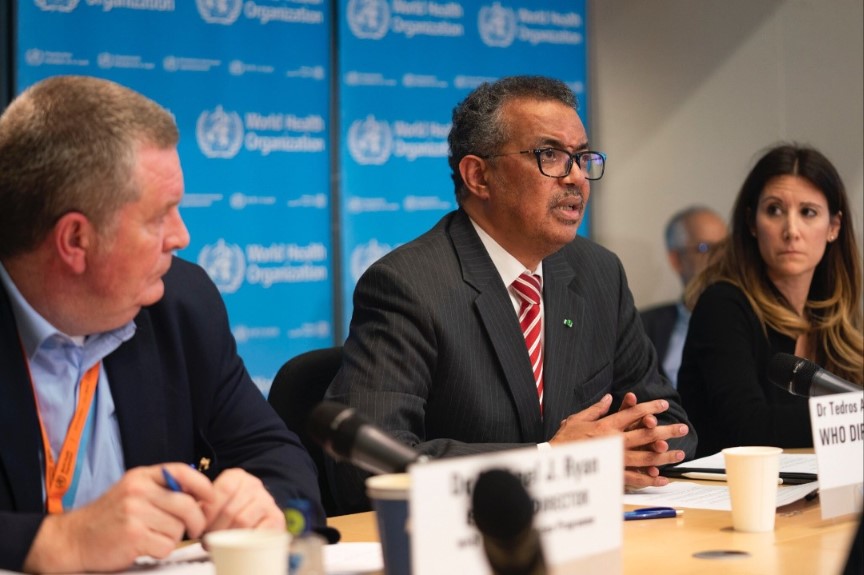KUALA LUMPUR, Jan 7 – The highly infectious Omicron Covid-19 variant may be less severe than the Delta strain, but it should not be categorised as “mild”, said World Health Organization (WHO) director-general Tedros Adhanom Ghebreyesus.
In a press briefing at the WHO headquarters in Geneva yesterday, Tedros said just like previous variants, Omicron is hospitalising and killing people. “In fact, the tsunami of cases is so huge and quick that it is overwhelming health systems around the world,” he said.
In its weekly epidemiological report published the same day, the WHO said global Covid-19 cases increased sharply by a record 71 per cent compared to the previous week, with just under 9.5 million new Covid-19 cases reported.
Tedros said even this was an underestimate as it did not reflect the backlog of testing around the holidays, positive self-tests not registered, and overburdened surveillance systems that miss cases around the world.
By region, the Americas reported the largest weekly increase by 100 per cent, followed by Southeast Asia (78 per cent) and Europe (65 per cent). The African region reported a weekly increase of 22 per cent in the number of new Covid-19 deaths, while all the other regions reported a decrease compared to the previous week.
Global coronavirus deaths fell 10 per cent to 41,000 for the week between December 27, 2021, and January 2, 2022. As of January 2, a total of nearly 289 million cases and over 5.4 million deaths have been reported globally.
Tedros said hospitals are becoming overcrowded and understaffed, which further results in preventable deaths from not only Covid-19, but other diseases and injuries where patients cannot receive timely care.
He further stressed that while first generation coronavirus vaccines may not stop all infections and transmission, they remain highly effective in reducing hospitalisation and death from the virus.
Public health social measures including the wearing of well-fitting masks, social distancing, avoiding crowds, and improving and investing in ventilation are important for limiting transmission, Tedros added.
The WHO’s Covid-19 technical lead Maria Van Kerkhove said it was “very unlikely” that Omicron would be the last variant of concern before the pandemic is over. Van Kerkhove urged people to step up the measures they were already taking to protect themselves in facing the more transmissible Omicron variant.
Tedros repeated his call for greater equity globally in the distribution and access to Covid-19 vaccines.
“The essence of the disparity is that some countries are moving toward vaccinating their citizens a fourth time, while others haven’t even had enough regular supply to vaccinate their health workers and those at most risk,” he said.
Based on the current vaccine rollout rate, 109 countries will miss the WHO’s New Year target for 70 per cent of the world’s population to be fully vaccinated by July.
“Booster after booster in a small number of countries will not end a pandemic while billions remain completely unprotected,” Tedros said.
Last year, the WHO chief said the world will have enough doses of the vaccine in 2022 to jab the entire global adult population – if Western countries do not hoard vaccines to use in booster programmes.








